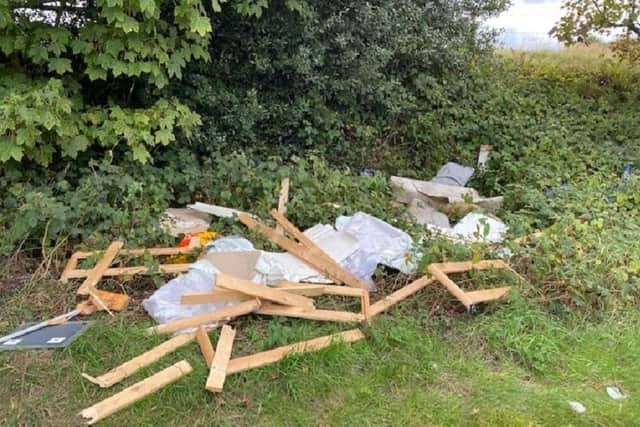Scourge of fly-tippers tackled by one of Warwickshire's councils in week of action


The borough council is hosting a week of action running until this Friday, to educate residents about fly-tipping, along with Warwickshire Police, Warwickshire Fire and Rescue, The Environment Agency and the NFU, to crack down on fly-tipping
Action includes increased presence at fly-tipping hotspots, a partnership day with Warwickshire Police, a drop-in day for information at the council offices and targeted social media #SCRAPflytipping Campaign.
Advertisement
Hide AdAdvertisement
Hide AdChairman of safer communities Cllr David Humphreys said: “I am delighted to be kicking off this week of action in North Warwickshire and am confident that we will see immediate improvements from this concentration of resources and educational campaign. Fly-tipping is our number one environmental issue and something we feel incredibly strongly about as a council, and we want to do everything we possibly can to tackle this.”
As well as educating the public on what constitutes fly-tipping the campaign also encourages North Warwickshire’s residents and businesses to follow the campaign’s S.C.R.A.P. code, which provides a check list to follow when arranging one-off collections of waste.
The S.C.R.A.P. Code is:
- Suspect all waste carriers; do not let them take your waste until they have proven themselves to be legitimate.
- Check their waste carrier’s registration details, then verify them by searching the Environment Agency
- Refuse unsolicited offers to have any rubbish taken away.
Advertisement
Hide AdAdvertisement
Hide Ad- Ask what exactly is going to happen to your rubbish and seek evidence that it is going to be disposed of appropriately.
- Paperwork should be obtained. Make sure you get a proper invoice, waste transfer note or a receipt for your waste removal – this should give a description of the waste and provide the waste carrier’s contact details.
A council spokesperson added that around two-thirds of fly-tips are household waste so a vital part of the campaign will be around educating people on how to dispose of their rubbish safety.
Fly-tipping costs the council around £175,000 per year and nearly £50 million in Britain as a whole. Fly-tipping is punishable by an unlimited fine or imprisonment.